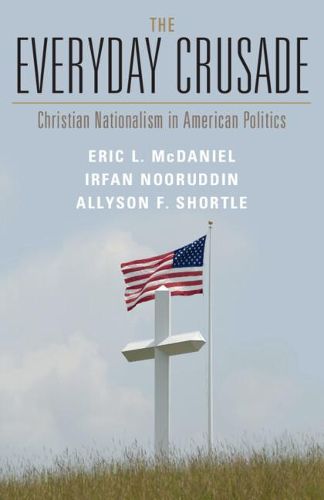Readings Newsletter
Become a Readings Member to make your shopping experience even easier.
Sign in or sign up for free!
You’re not far away from qualifying for FREE standard shipping within Australia
You’ve qualified for FREE standard shipping within Australia
The cart is loading…






What is causing the American public to move more openly into alt-right terrain? What explains the uptick in anti-immigrant hysteria, isolationism, and an increasing willingness to support alternatives to democratic governance? The Everyday Crusade provides an answer. The book points to American Religious Exceptionalism (ARE), a widely held religious nationalist ideology steeped in myth about the nation’s original purpose. The book opens with a comprehensive synthesis of research on nationalism and religion in American public opinion. Making use of survey data spanning three different presidential administrations, it then develops a new theory of why Americans form extremist attitudes, based on religious exceptionalism myths. The book closes with an examination of what’s next for an American public that confronts new global issues, alongside existing challenges to perceived cultural authority. Timely and enlightening, The Everyday Crusade offers a critical touchstone for better understanding American national identity and the exclusionary ideologies that have plagued the nation since its inception.
$9.00 standard shipping within Australia
FREE standard shipping within Australia for orders over $100.00
Express & International shipping calculated at checkout
What is causing the American public to move more openly into alt-right terrain? What explains the uptick in anti-immigrant hysteria, isolationism, and an increasing willingness to support alternatives to democratic governance? The Everyday Crusade provides an answer. The book points to American Religious Exceptionalism (ARE), a widely held religious nationalist ideology steeped in myth about the nation’s original purpose. The book opens with a comprehensive synthesis of research on nationalism and religion in American public opinion. Making use of survey data spanning three different presidential administrations, it then develops a new theory of why Americans form extremist attitudes, based on religious exceptionalism myths. The book closes with an examination of what’s next for an American public that confronts new global issues, alongside existing challenges to perceived cultural authority. Timely and enlightening, The Everyday Crusade offers a critical touchstone for better understanding American national identity and the exclusionary ideologies that have plagued the nation since its inception.